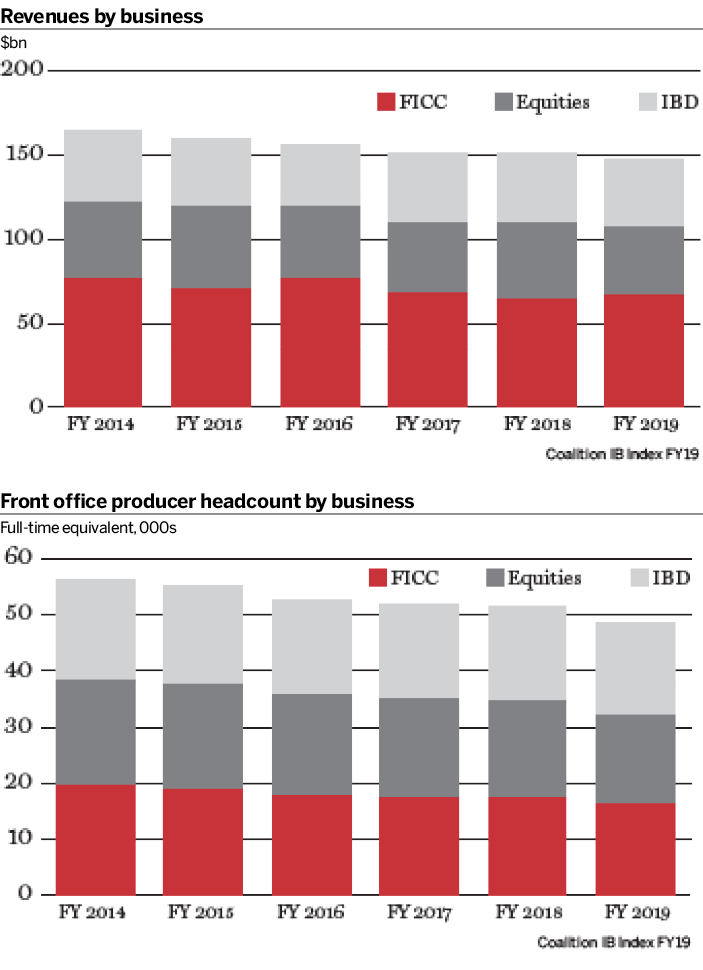New figures highlight a difficult 2019 for the investment banking industry, as Marie Kemplay discovers.
Investment banking revenues in 2019 fell to their lowest levels since 2008, according to Coalition’s full-year 2019 Investment Bank Index. The index, based on data from the world’s 12 largest investment banks, shows that revenue on an industry-wide level fell by 3% year on year, from $151.4bn to $147.5bn.
This specific decline was particularly down to a weaker performance in equities, where revenue fell 10% year on year. Lower trading volumes and continued margin compression in cash equities, as well as a weaker performance in equity derivatives, including fewer strategic transactions, led to an overall decline. The investment banking division also saw revenue fall by 3%, due to a decline in cross-border merger and acquisition activity and smaller equity capital markets revenues in Europe, the Middle East and Africa. Debt capital markets, however, enjoyed a stable performance.
In contrast, fixed income, currencies and commodities (FICC) saw revenue increases of 3%. This was driven by a strong performance in spread products such as investment-grade securities and agency residential mortgage-backed securities. Revenue increases in G10 rates and commodities also made a contribution.
Return on equity for Coalition Index banks fell by 60 basis points year on year, from 7.1% in 2018 to 6.5% in 2019, due to the decline in revenues.
The investment banking industry also saw a significant number of job losses in 2019. Staff headcount dropped 6% year on year from 518,000 to 489,000. In 2019 the drop in headcount was mainly driven by job losses in equities, particularly within cash equities teams. FICC teams also saw job losses, primarily in macro products teams.
Banks including HSBC, Barclays, Société Générale, Citigroup and Deutsche Bank all made job cuts in 2019. Perhaps most prominent was Deutsche Bank’s announcement in July that it was planning to cut 18,000 jobs at its investment bank, most notably in areas such as equities trading and fixed income. In 2020 there have already been further job losses announced, with HSBC planning to cut 35,000 jobs across the board, with a significant proportion of these expected to come from downsized investment banking operations. Such job losses come alongside increasing levels of automation across a range of markets, from equities to foreign exchange, and increasingly in fixed-income securities.



